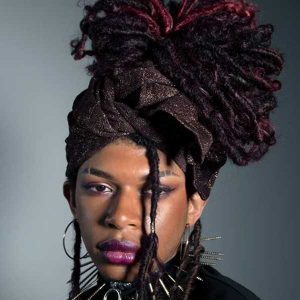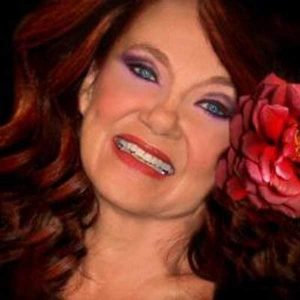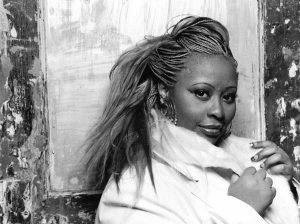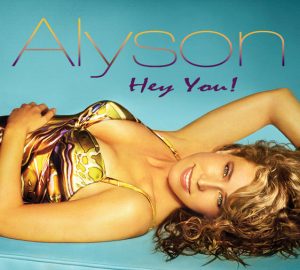When it comes to achievements within the worldwide dance music scene, Peter Rauhofer has few equals. A lauded producer, remixer, DJ, and label owner, he has spent the last twenty years establishing himself as a force to be reckoned with in an industry where many merely come and go. Thanks to his Midas touch in all departments he currently represents a solid part of the city’s electronic establishment and has been recognized by the global electronic cognoscenti as a true heavyweight in his various fields. After all, who else can say they’ve remixed everyone from Madonna to Yoko Ono, enjoyed a multitude of massive club and chart hits, run a world-famous record label, hosted one of New York City’s most thrilling club nights, AND won a prestigious Grammy award for their studio talents?
Such success is perhaps even more impressive given that Peter was born and raised in Vienna, Austria at a time when the music industry there was severely restricted and musical innovation and entrepreneurship rare. But although the main musical legacy of his country had been classical (Strauss) and mainstream pop (Falco), an underground dance scene did emerge in the early eighties. When it arrived, Peter was ready and waiting for it. “I used to listen to records on radio Luxembourg, record the music onto cassettes and drive my friends crazy with them” he recalls with a laugh. “I became a kind of informant for friends and record shops who wanted to know more about the 70’s pop, rock, and disco music that I was listening to. At the time it was very hard to get access to any alternative music so I had to be really enthusiastic to keep it going.”
His efforts were duly rewarded when one day a record store near his school offered him a job. Not long after he began working for premier Austrian imprint Gig records. Through the store, he started to get turned on to the sound of the early house and techno records coming in from Chicago and Detroit. He began to DJ at Vienna’s only real underground club U4, playing his underground sounds to “a mix of punks, mods, poppers and all sorts smoking joints…it was dirty, underground and fucked up, but it was stylish too.” While he was busy introducing dance music to Vienna, he was also busy manufacturing hit records for Gig, learning to balance mainstream success with underground credibility. Several people he knew were learning their way around studios in Vienna, so Peter hit upon the idea of putting together a compilation that featured local artists. Two of the people he bought into the studio were Kruder and Dorfmeister, who met through Peter for the first time! In fact, Peter’s first attempt at production was a collaboration with Richard Dorfmeister under the pseudonym of Danube Dance, but it was his own hit ‘Let Me Be Your Underwear’ (as Club 69) that made his name back in 1992.
“It was supposed to be a novelty tune,” says Peter, “But suddenly it was fitting in with the vogue for camp house tunes at the time like ‘Short Dick Man. It went big into the pop charts and the next thing I knew Pete Tong was signing it for FFRR. One thing led to another and suddenly I was doing a tour and being asked to make an album and was so busy I couldn’t hold down my jobs at the store and the label anymore. I was playing in Rome, Paris, Milan, UK, and Hollywood…people were also asking me for remixes all the time. A couple of years later I decided I wanted to move to New York and just concentrate on my recording and DJ’ing career.”
Peter moved to the Big Apple in 1995, with two Club 69 LPs (‘Adults Only’ and ‘Style’) and several more club and chart successes (“Diva”, “Unique”, “Drama”, “Alright”, “Muscles”, and “Twisted” to name but a few) already under his belt. His first singing was with Tribal America in 1994, but when that label folded he moved to Twisted, recording another album as Size Queen and remixing the likes of Funky Green Dogs and Danny Tenaglia, mostly under the Club 69 banner. As the remix work started to come in from the majors, Peter began using his own name. He started with the Eurythmics and Depeche Mode and quickly went onto mega-stars like Madonna (‘Nothing Really Matters’, ‘Impressive Instant’, ‘Skin’) and the Pet Shop Boys, with whom he reworked Raze’s 1989 classic ‘Break 4 Love. In 2000 he won a prestigious Grammy in the Remixer of the Year category, following in the footsteps of veterans like David Morales and Frankie Knuckles.
“I had always been fans of Knuckles and Morales so it was a great honor for me to finally be placed alongside them in respect of the Grammy,” says Peter. “I never really expected to be chosen so I was like, ‘Wow!’ I never had any kind of publicity team at the time, so people just voted purely because they liked my material which made me feel very proud. It’s much more powerful when you win out of the blue like that. It made me feel good because now I belong to dance music history in a way, and it’s something that no one can ever take away from you. I didn’t let it affect me though. I had Madonna’s manager calling me asking me how much I was charging now for remixes, and I told her it was the same. People were reminding me sometimes that I had won it because I often downplayed it.”
Interestingly enough, when it comes to remixes Peter still does most of his work back in Vienna: “I always saw New York as a vacation place first and foremost and I guess that stuck” he explains. “So I like to hang out and DJ here, but when I have a remix I go back to Vienna and do it. It’s a different inspiration there. The vibes seem to be right and I know what sounds great. I’ve tried it in other places and often it just doesn’t sound right.”
In 1999, Peter realized another goal: starting his own imprint. Although an independently run operation, Star 69 today boasts the kind of roster that wouldn’t look out of place on a major: Pet Shop Boys, Frankie Goes To Hollywood, Yoko Ono, Lula, house diva Suzanne Palmer, and underground sensation Celeda are just some of the artists associated to the label, and there are plenty more signing in the pipeline. “I had been signed to Tribal America since 1994, and then when they folded I went over to Twisted with the likes of Danny Tenaglia, Murk, and Deep Dish. When that label folded and we were all homeless once again I decided it was the right time to start out myself. I chose the name Star 69 so that fans would have a link to his previous work and signed some artists that had been with Twisted such as Celeda and Suzanne Palmer who all became homeless after Twisted went out of business. I love to signing artists ever since my days at Gig, and I also wanted to contribute something to dance music.”
With 100 releases so far from Star 69, things are only going to get bigger as Peter’s focus on the label becomes stronger. “The next thing we’re going to get into is artist development” he enthuses. “We’re going to get together with some producers and get some artist albums. With all these achievements and experiences under his belt, has there been any overriding source of happiness for Peter Rauhofer, dance music’s best-loved Viennese Whirl? He pauses for a second before answering ” When you live in Europe and watch the US dance scene it seems very untouchable” he says at last. “But over the years I’ve realized that it’s not that hard to step into it and make some noise. I used to revere the New York producers from afar, but now I feel like one of the family. That’s something that makes me very happy ”







